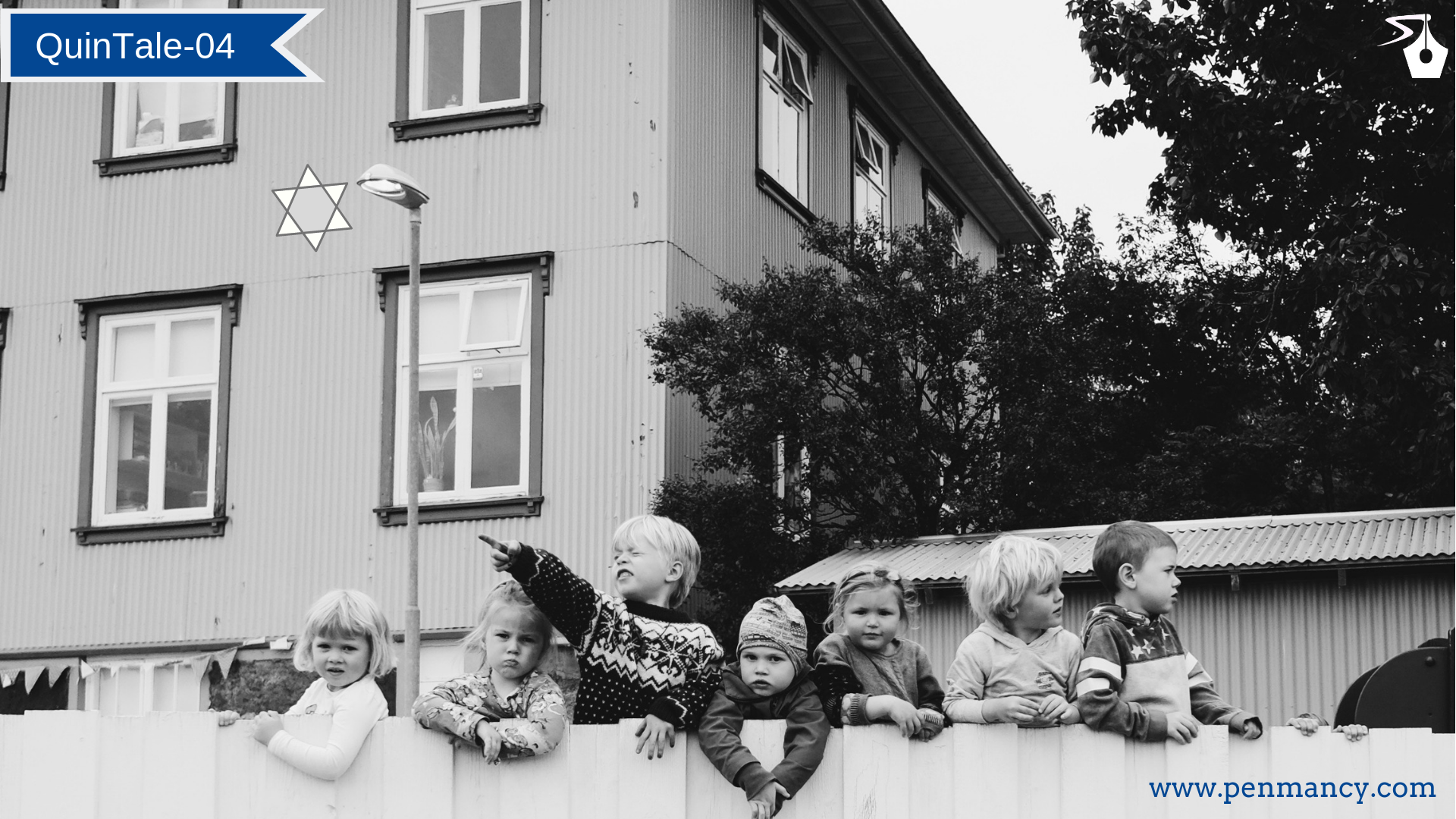Redemption

It was the fall of 1942. After many days I opened the curtains to let in some light. But the Warsaw streets showed the usual sight. German soldiers, in their pursuit of glory, were trampling the lesser mortals. What Weber, my husband, and a Nazi medical officer, described as his 'path to redemption', I found it 'sadistic'. That's why he chose to leave me behind. He had not been home in months then. But the money he sent reached well in time and mostly landed up unused in the chest.
Suddenly my eyes caught a curled up figure on the main gate. Two little girls gasping for breath were clasped to her chest. Amidst the scenes of brutality outside and loneliness inside, the idea of some goodness and company looked inviting. Hence I approached Miriam.
Fear and hunger writ large on their faces.
"Need help? Come in." I gestured toward the gate. For lack of choice, she hurriedly trudged in. "There's a surprise for you in the garage," I whispered guiding her way down to keep them hidden from the direct line of sight. A blanket, some milk, and cake were enough to earn her Jewish loyalties. Soon the otherwise wasted garage became their safe heaven and four lives started thriving in my lonely abode.
At times I had to debar girls from touching Weber's medical supplies piled in the dusty cardboards in the garage. But otherwise, the girls were a treat to the eyes. Often I would steal some furtive glances as the twins jumped on my embroidered carpet with glee. Every time their tender fingers caressed the crystal vase, a faint smile would touch my lips. A strange knock at the door and my heart pounced more than theirs. In all this, I envied Miriam a little less than I hated Weber for depriving me of these joys.
In spite the desolate times, our lives were a little less of a struggle and months passed just fine. Until one day the twins tiptoed out of the garage stealthily.
For days Miriam and I went helter-skelter looking for them. When our worst fears took over, we even searched around the 'ghettos' in vain. Just when we had resigned to fate, the gruesome reality showed its face.
The twins laid right there, howling in pain, eyes bulging, mouths foaming, backs mutilated, wounded ribs suppurating. Their pleading eyes met their mother's who stood stoned.
I ran to the garage to find some elixir in the boxes. Instead, I found morphine.
Pressing the packet in Miriam's palm, I left her to fight the fiercest battle of motherhood.
As the three collapsed behind, I felt weighed down by a harrowing sin.
That's when the garage turned into a safe house hiding some 50 children till their safe exit from Poland, as part of clandestine Jew rescue operations.
Sarah Scholl March 1944 (A hand-written account before execution)
___
